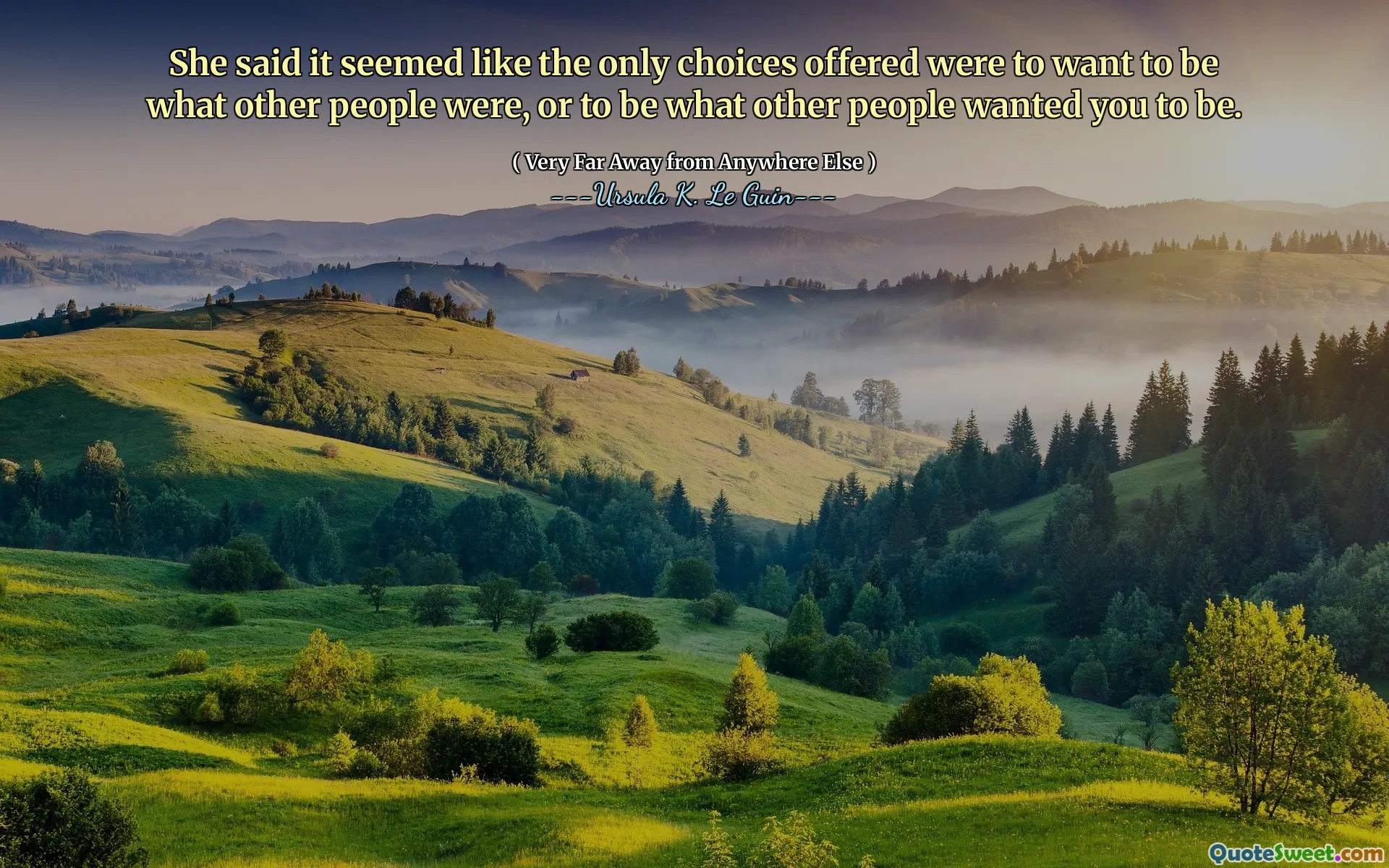
She said it seemed like the only choices offered were to want to be what other people were, or to be what other people wanted you to be.
This quote underscores a profound dilemma faced by many individuals: the struggle between authentic self-expression and societal expectations. It highlights the limited options perceived by the speaker—either to emulate others and conform to their identities or to succumb to external pressures and live according to other people's desires. Such a perspective speaks to the universal challenge of maintaining personal authenticity in a world that often values conformity. When we feel compelled to mirror others, we risk losing our unique sense of self, which can lead to a diminished sense of fulfillment and identity. Conversely, trying to be what others want us to be can foster feelings of alienation and internal conflict, as the authentic self gets overshadowed by external expectations.
This duality reflects the broader societal tension between individuality and conformity. Many individuals, especially during adolescence and later transitional phases of life, grapple with these choices, sometimes feeling trapped between these two extremes. The quote's subtle yet powerful insight invites us to consider how societal norms and interpersonal pressures influence our sense of self, prompting reflection on whether true authenticity is achievable within these confines. It also encourages the reader to question these perceived choices and think beyond them—seeking ways to embrace their unique identity without succumbing to external pressures. Ultimately, the quote reminds us of the importance of introspection and courage in forging a path that honors our individual essence amid external influences, fostering genuine authenticity and inner peace.






